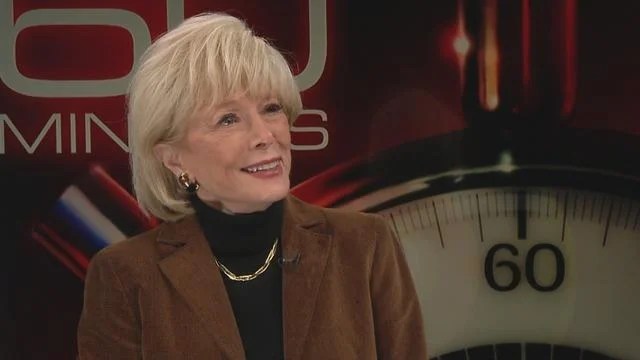In the world of journalism, few programs have left a mark as significant as 60 Minutes. This iconic television show has a legacy of investigative reporting that delves deep into current affairs, human interest stories, and compelling interviews. The reporters of 60 Minutes have become synonymous with integrity, tenacity, and the pursuit of truth. Their work not only informs the public but also shapes the discourse around pressing issues, making them invaluable contributors to the media landscape.
From its inception in 1968, 60 Minutes has been a platform for some of the most distinguished journalists in the field. Each reporter brings a unique perspective and style to the show, creating a diverse tapestry of storytelling that resonates with audiences. With a commitment to uncovering the facts, these reporters tackle difficult subjects and often put themselves in harm's way to bring the truth to light. The dedication and passion exhibited by the 60 Minutes reporters have not only garnered respect but have also won numerous awards and accolades over the decades.
As viewers tune in week after week, they are not just watching news segments—they are witnessing the relentless pursuit of justice, accountability, and the human experience. The 60 Minutes reporters take on challenging interviews with politicians, celebrities, and everyday people, all while maintaining the highest journalistic standards. This article will explore the lives and careers of some of the most notable 60 Minutes reporters, their contributions to journalism, and the impact they have had on society.
Who Are the Notable 60 Minutes Reporters?
The legacy of 60 Minutes is intertwined with the influential reporters who have graced its screen. Some of the most recognized names include:
- Walter Cronkite
- Diane Sawyer
- Anderson Cooper
- Scott Pelley
- Lesley Stahl
What Makes 60 Minutes Reporters Stand Out?
60 Minutes reporters are distinguished by their unique approach to journalism. They possess a remarkable ability to engage with their subjects while maintaining an objective viewpoint. Their investigative techniques often involve extensive research and a meticulous attention to detail, ensuring that their stories are not only compelling but also credible. The reporters are also known for their masterful storytelling, which captivates audiences and encourages them to think critically about the issues presented.
What Are Some Memorable Segments by 60 Minutes Reporters?
Over the years, 60 Minutes has aired countless impactful segments that have left a lasting impression on viewers. Some memorable segments include:
- The Pentagon Papers investigation
- Interviews with world leaders
- Exposés on corporate corruption
- Human interest stories that highlight personal struggles and triumphs
What Is the Biography of a Renowned 60 Minutes Reporter?
One of the most prominent figures in the realm of investigative journalism is Lesley Stahl. Her career has spanned over four decades, and she has become a staple of 60 Minutes. Below is a brief biography and personal details about her life:
| Name | Lesley Stahl |
|---|---|
| Date of Birth | December 16, 1941 |
| Birthplace | Swampscott, Massachusetts, USA |
| Education | B.A. in Political Science from Wheaton College |
| Career | Reporter, CBS News Correspondent, 60 Minutes Correspondent |
| Awards | Multiple Emmy Awards and Edward R. Murrow Awards |
How Has Lesley Stahl Contributed to 60 Minutes?
Lesley Stahl's contributions to 60 Minutes are immeasurable. Known for her incisive interviewing style, Stahl has tackled some of the most sensitive topics of our time. Her ability to connect with her subjects has led to some of the most revealing and impactful interviews in the show's history. Stahl's work on 60 Minutes has not only solidified her reputation as a leading journalist but has also inspired countless young reporters to pursue careers in investigative journalism.
What Challenges Do 60 Minutes Reporters Face?
The world of investigative journalism is fraught with challenges. 60 Minutes reporters often navigate complex political landscapes, face threats to their safety, and deal with the pressure of tight deadlines. The pursuit of truth can lead to uncomfortable confrontations, and reporters must be prepared to handle backlash from their subjects. Despite these obstacles, the commitment of 60 Minutes reporters to uphold journalistic integrity remains unwavering.
What Is the Future of 60 Minutes Reporters?
As the media landscape continues to evolve, the role of 60 Minutes reporters will undoubtedly adapt. The rise of digital media and social platforms presents new opportunities and challenges for investigative journalism. However, the core principles that have defined 60 Minutes—integrity, thoroughness, and a commitment to the truth—will remain essential. The next generation of reporters will carry forward this legacy, ensuring that the spirit of 60 Minutes endures in a rapidly changing world.
How Can Viewers Support 60 Minutes Reporters?
Viewers can support the vital work of 60 Minutes reporters in several ways:
- Engaging with the content by watching episodes and sharing stories on social media.
- Providing feedback and expressing appreciation for the dedication and hard work of the reporters.
- Advocating for press freedom and supporting initiatives that protect journalists.
What Legacy Will 60 Minutes Reporters Leave Behind?
The legacy of 60 Minutes reporters is one of bravery, truth, and unwavering commitment to the public. Their stories continue to spark conversations and inspire change, making them an indispensable part of the journalistic community. As they forge ahead, the impact of their work will undoubtedly resonate for generations to come.




